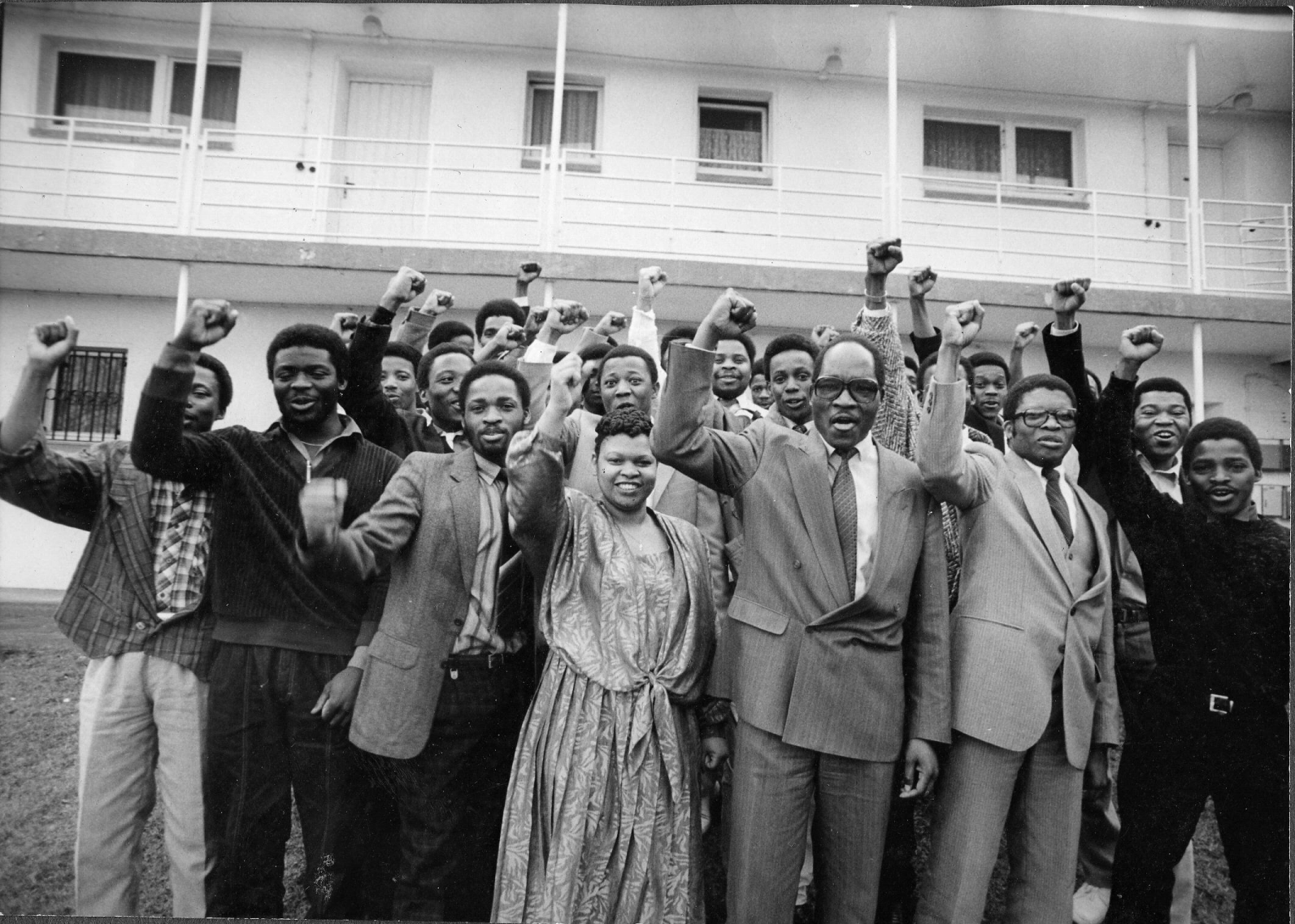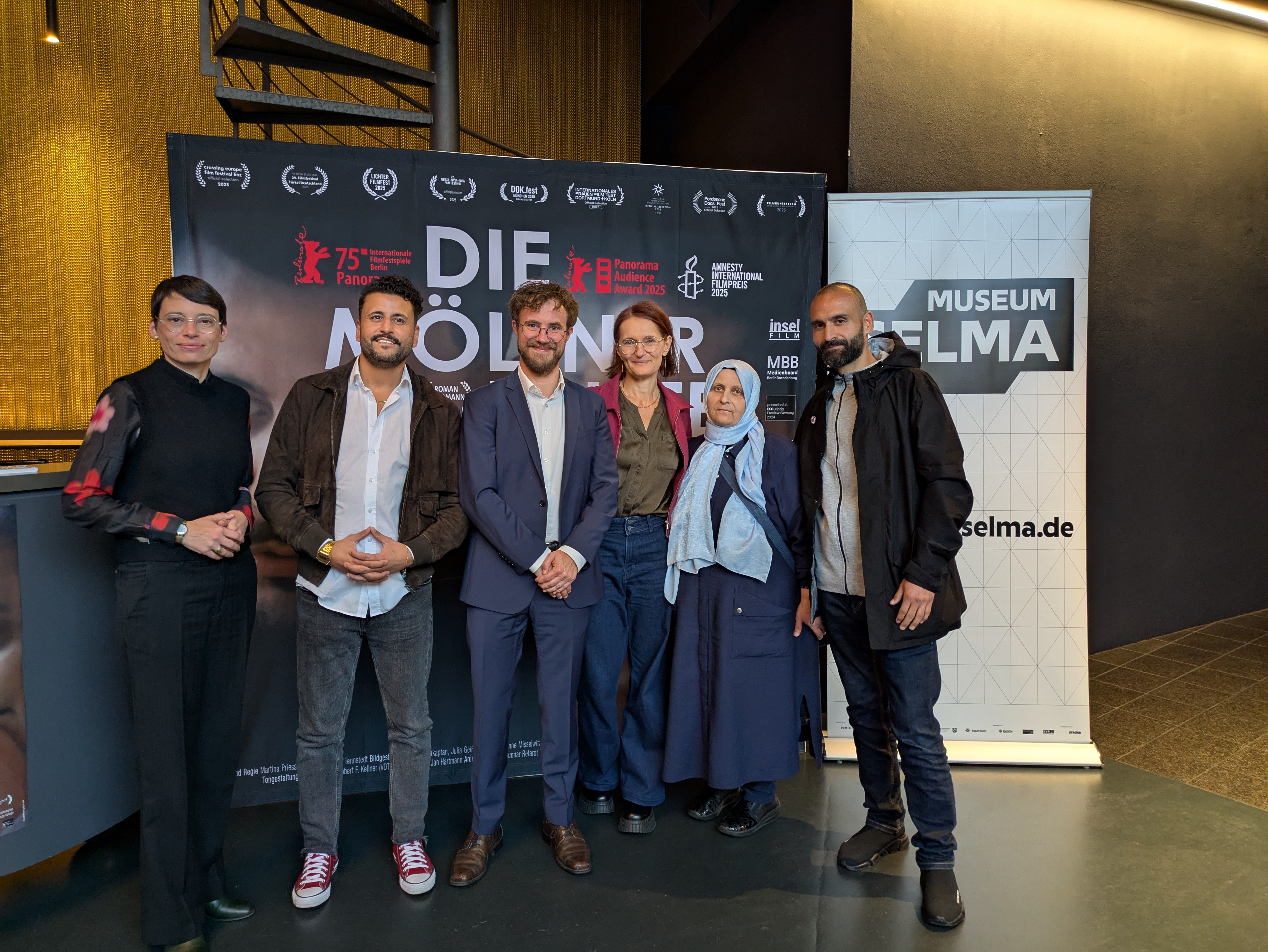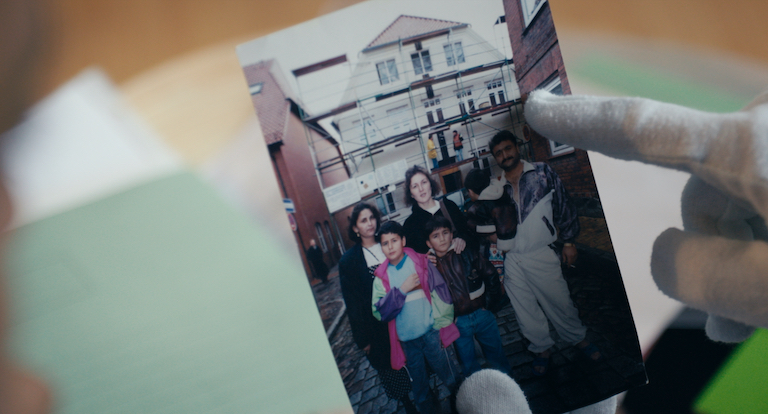
Event, News, Collection
Black History Month Guided Tour: A journey through Black history in our collection
26 February 2026
DOMiD is also a place of Black history. Using selected objects, the history of Black people in Germany becomes tangible.

News, Collection, Moelln
A special contemporary testimony to the history of the Federal Republic of Germany has found its way into the collection of the Documentation Center and Museum on Migration in Germany (DOMiD). The "Moelln Letters" provide insight into a civil society that was horrified by the racist arson attacks in the early 1990s and sympathized with the suffering of those affected. Through indexing, archiving and complete digitization at DOMiD, these will be made accessible to research in the future while preserving personal rights.
When the Yılmaz and Arslan families mourned their murdered family members in 1992, the then German Chancellor Helmut Kohl did not take part in the mourning ceremonies so as "not to lapse into condolence tourism," as a government spokesman put it at the time. Others expressed their sympathy and took a stand against the increasing racist violence in the newly reunified Germany.
Solidarity in the form of letters
After the attacks, the city of Moelln called for people to express their sympathy to the families. Hundreds of private individuals, including children and young people, but also institutions, schools and associations, as well as public figures and representatives from politics and business, wrote to the families, expressing their grief and horror. Even concrete offers of help were made. Only: these letters probably did not reach large parts of the two families. It was not until 2019 that İbrahim Arslan, one of the nine injured and survivors of the arson attack, became aware of the letters, which were stored in the Moelln city archives, and demanded that they be handed over to the family. The city complied with the request.
Dignified remembrance called for
To this day, it has not been possible to reconstruct why the letters were not known to the families, according to their statements, although they were kept in the city archive and were also used there as part of educational programs. Today, Arslan says, "If we had known about the sympathy and solidarity in society at the time, it would have helped us then and given us a little comfort." For decades, the families have been advocating a dignified remembrance in which those affected are at the center.
The “Mölln letters”
We use the same term for the collection of material given to us by the families: the “Möllner Letters”. The collection consists of a total of 908 documents such as letters, postcards, mourning cards, faxes, telegrams, poems, signature lists and drawings. This does not include the condolence books, press collections, exhibition boards, resolutions, posters and reply templates from the town of Mölln, which are also part of the collection. At the beginning of 2021, DOMiD had already added hundreds of documents to the collection and completely digitized them. In 2023, after further letters and accompanying material were found and handed over to dOMiD, a second collection followed. Researchers can conduct research in the archive premises in Cologne-Ehrenfeld by appointment.
Preservation against oblivion
The Arslan family has long been a lender to DOMiD's collection of photographs and documents. Both families found it easy to decide that the letters should be kept at DOMiD, says İbrahim Arslan: "DOMiD is the place where migration history is told, processed and studied. For our family, it was clear that the letters should also be kept there, where not only the white dominant society tells its story, but where the stories of our families are also told." Bengü Kocatürk-Schuster, Collection Expansion Officer at DOMiD: "The letters are valuable testimonies of recent contemporary history. For us, it is an important sign of trust in DOMiD that the families know their stories, as well as their emotionally charged archival materials, are in good hands with us." Both DOMiD and the families are open to educational collaborations with the material.
In February 2025, the documentary film “The Moelln Letters” by director and author Martina Priessner will celebrate its world premiere at the 75th Berlin International Film Festival.
All articles German only
ZEIT Online (23.11.2022): "Die Briefe, die nie ankamen"
taz (17.11.2022): Briefe an Brandanschlags-Opfer: Solidarität ausgebremst
Süddeutsche Zeitung/dpa (20.11.2022): 30 Jahre nach Möllner Brandanschlägen: Entsetzen bleibt
NDR (19.11.2022): Wir sind doch keine Statisten!
jw (23.11.2022): »So können wir die Geschichte der Familie Arslan erzählen«
Kölner Express (08.02.2025): Briefschatz in Köln aufbewahrt – »wussten nichts von der Existenz«
Press release
They went unnoticed for decades: emotional documentary “The Mölln Letters” celebrates its world premiere
PDF / 435.1 kB
Press release
30 years after racist arson attacks: DOMiD preserves "Möllner letters"
PDF / 358.5 kB
Speech manuscript [DE/TR/EN)
Speech by Bengü Kocatürk-Schuster at the family's memorial service in Mölln, 23.11.2022
PDF / 139.0 kB

Event, News, Collection
26 February 2026
DOMiD is also a place of Black history. Using selected objects, the history of Black people in Germany becomes tangible.

News, Movies, Collection
25 September 2025
The documentary film will be released in theaters on September 25, 2025. It tells the story of the hundreds of letters that were written after the racist attack in Mölln in 1992 – but never reached the families affected.

News, Movies, Collection, Moelln
The documentary “The Moelln Letters” celebrates its world premiere at the 75th Berlinale. The bereaved of the 1992 Mölln attack only found out about the many hundreds of letters of solidarity decades later. They are kept at DOMiD.